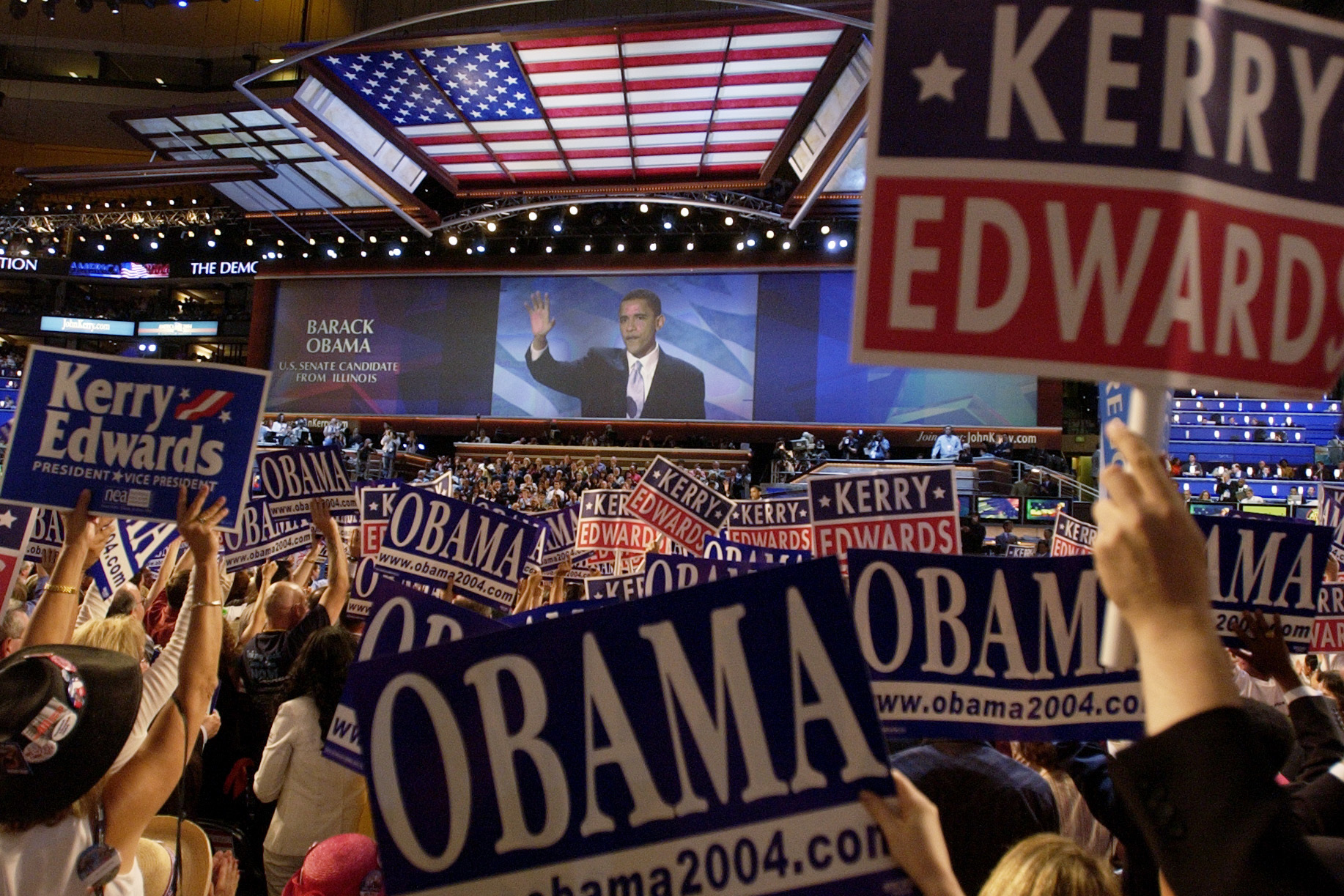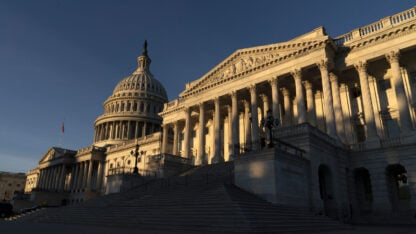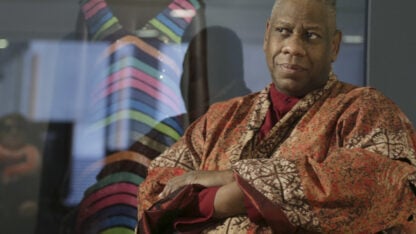Political Conventions Will Likely Never Be The Same

Delegates cheer as keynote speaker Barack Obama, candidate for the Senate from Illinois, speaks during the Democratic National Convention at the FleetCenter in Boston, Tuesday, July 27, 2004.
Laura Rauch / AP
It’s a nondescript, utilitarian room in the bowels of a sports arena. The presidential nomination is on the line. Aides to three candidates still in the contest are haggling with convention staff over who speaks when, will their biographical videos be shown, whose office space is nearest the floor. It’s a political junkie’s dream. It could be real. But it’s not. This is how it played out in a 2012 episode of NBC’s prime-time drama The West Wing.
The last time something even remotely close to this truly happened was in the summer of 1952, when Illinois Gov. Adlai Stevenson secured the Democratic nomination on the third ballot — the third round of voting. That’s how far you have to go back to find a presidential nominating convention that needed more than one ballot to choose its nominee.
And since the 1970s, such a scenario has become even more unlikely, given that delegates are now awarded in caucus and primary contests held in every state and territory.
A tradition going back two centuries
The big Democratic and Republican conventions are a political tradition dating back to the 1800s. But in the modern era, each year, there’s growing criticism that they are simply outdated, expensive, multi-day infomercials. This year, the pandemic has forced both parties to cancel plans and make their conventions virtual. Some see it as an opportunity to completely overhaul how such events are held in future years.
Beyond the fact that it was the last time there was a so-called brokered convention, 1952 was an important year. It was also the year of the very first live, coast-to-coast television broadcast of political convention proceedings. Both party gatherings were held weeks apart, at the International Amphitheater in Chicago. Viewers across the country were able to watch from their living rooms as the Democrats nominated Stevenson, while the GOP standard-bearer was a newcomer to politics, former General Dwight D. Eisenhower who would go on to win the election. But television also brought a shift in how the organizers of the conventions approached their jobs. Professor Eric Heberlig of the University of North Carolina, Charlotte says the parties began looking beyond the convention hall. He says their thinking was, “what’s going to reinforce our verbal message with a visual message,” adding the planning began to focus on “that audience out there that’s watching on television?”
Charisma and conflict in the TV age
To watch old newsreel footage of that first televised convention is to see a very primitive production. The sound was often distorted. The camera movements often jerky, the images grainy. The technology improved rapidly, and by 1960, the Democrats nominated the young, telegenic Sen. John F. Kennedy, who was the first candidate to fully embrace the age of television.
“I am asking each of you to be new pioneers on that New Frontier,” Kennedy said from the rostrum, clearly speaking to more than just the delegates in the hall, “My call is to the young in heart, regardless of age — to the stout in spirit, regardless of party.”
But as TV took over, the cameras also captured conflict, and party infighting. That’s what made the 1964 Republican convention memorable, as conservative and liberal wings of the GOP clashed in plain view of the networks. That’s the convention where conservative Arizona Sen. Barry Goldwater captured the nomination, with a speech that boasted, “Extremism in defense of liberty is no vice!” After a roar of cheers and applause Goldwater finished the sentence with, “let me remind you also that moderation in the pursuit of justice is no virtue!”

That line was a sharp rebuke to an earlier convention speech from Goldwater rival Nelson Rockefeller, the liberal Republican governor from New York. Rockefeller had been addressing the platform committee, stating that, “The Republican party should reject extremism from either the left or the right.” The governor, who himself had sought the presidential nomination that year, was drowned out by shouts from the delegates and spectators.
Four years later, Democrats had their own epic and messy internal battles at a convention where the enduring images are of violent clashes outside between anti-war protestors and Chicago police using aggressive tactics.
Big moments for new faces
Conventions have become increasingly choreographed, much to the frustration of television networks hoping for a story to tell. Still, that doesn’t necessarily mean there aren’t legitimately newsworthy moments.
In 2004, there was a young state senator from Illinois, who was running for the U.S. Senate that summer. His name was Barack Obama and he described, “The hope of a skinny kid with a funny name who believes that America has a place for him, too.”
Then, in 2008, there was a little known GOP governor from Alaska named Sarah Palin, who was a surprise pick as the running mate to John McCain just days before the convention. Palin delivered a blockbuster speech, peppered with humor.
“I love those hockey moms,” she said, deftly setting up a punch-line, “You know, they say the difference between a hockey mom and a pit bull? Lipstick.”
Palin’s celebrity soared, even as her political career fizzled. But the Republican convention was her first big stage.
And as for the complaints that conventions have become too scripted, with nothing left to chance, there are still moments that backfire. Witness Democratic nominee Walter Mondale in 1984, who made a promise that would haunt his campaign to unseat President Ronald Reagan.
“Mr. Reagan will raise taxes,” Mondale intoned, adding, “and so will I. He won’t tell you. I just did.”
Then there was the time in 2012 when a surprise guest took stage at the Republican convention in Tampa. Viewers were stunned to see actor/director Clinton Eastwood appear, standing next to an empty chair. He pretended President Obama was sitting there for an interview.
“What do you want me to tell Romney?” Eastwood said in his gravelly Dirty Harry voice. A pause, then “I, I can’t tell him to do that. He can’t do that to himself.” The mere hint there of vulgarity may not seem like much in 2020, but in 2012, at a convention to nominate Mitt Romney, it was both awkward and a bit shocking. The audience did laugh — nervously.
Time for a change, political pros say
Doug Heye, a former spokesman for the Republican National Committee, has come to the conclusion that it’s time to scrap the ritual of the big, multi-day political convention.
“Conventions haven’t changed in practically 40 years,” Heye says. They’ve “become four nights of a big, bloated system that just doesn’t get the attention that it used to.”
TV networks that once boasted of their gavel-to-gavel coverage, now only carry the big prime-time speeches live. And even during those evening broadcast, anchors and guests talk over most of the action on the convention floor.
Heye says the cost of providing security — millions and millions of dollars — also makes such events less attractive to potential host cities as well. He says the pandemic gives everyone a reason to rethink how these things are done.
This year, the conventions have gone virtual. That’s a dramatic break from tradition and, Heye says, “I think it’d be almost impossible for a party to say we want to go back exactly to what we did in 2016 and this was just a blip.”
“You’re going to evolve from this one way or another,” he predicts. “The question is how?”

What’s next?
Democrats and Republicans alike were already trying to adapt to a new viewing audience. The push this year has been to use VIRAL moments in the way JFK embraced TV 60 years ago. Leah Daughtry ran two national conventions for the Democrats — in 2008 and in 2016. She says conventions — no matter what shape they take — do still answer some core questions for voters.
“What are the party’s values? What is the party’s vision? How is this nominee going to take us further? How are we planning to move the nation?” Those are important things that voters, many of whom see conventions as their cue to start paying attention to the election, want to have answered.
Daughtry predicts that once 2020 is over, the next round of conventions in 2024 will be shortened to maybe just two days instead of the traditional four. She says that even if TV networks give them less coverage, they still have great value for the party, and for party activists who volunteer for campaigns.
“I don’t know that conventions are dead,” says Daughtry. who today works as a Christian minister at a church in Washington, D.C. “They may be reformed and reformatted.” And, she begins to evangelize when she thinks about the people who come to conventions as delegates and as volunteers, “But that kind of energy of several thousand people, you and your closest thousand friends in the hall just won’t go away. ”
It does seem like the door is being closed on a certain kind of convention. What the future template for these mega-events will look like in the future is still unknown. A lot will likely be learned from how 2020’s virtual conventions go, but no one believes that they will be the model for 2024 and beyond.
9(MDAxODM0MDY4MDEyMTY4NDA3MzI3YjkzMw004))








